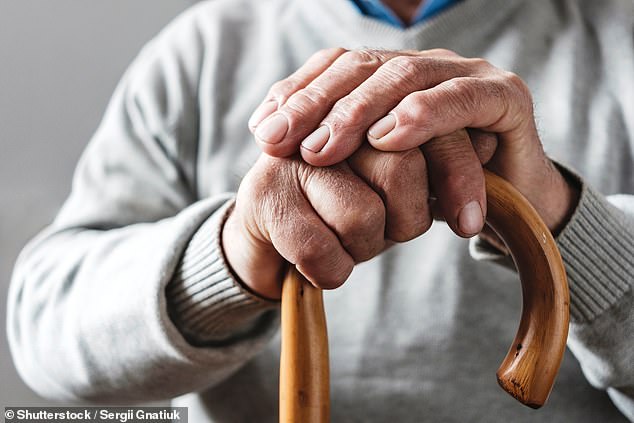Most older people will notice that they are not as fast as they once were.
Now, experts believe they have discovered why we tend to move more slowly as we age.
A team at the University of Colorado Boulder asked two groups of participants to complete a simple task that involved reaching for a target on a screen.
One group included people between 18 and 35 years old, while the other included people between 66 and 87 years old.
The researchers measured their reaction time during the task and how much energy it required, also known as metabolic cost.
They found that older participants took more energy to complete the movement compared to their younger peers.
The researchers asked participants ages 18 to 35 and ages 66 to 87 to complete a simple task that involved reaching for a target on a screen.
The research, published in the journal JNeurosci, is one of the first studies to experimentally unravel the competing reasons why people over 65 might move a little slower than they used to.
He says: “Here, we first quantified the cost of reaching through metabolic energy expenditure in human participants and found that older adults consumed more energy than younger adults at a given rate.
“Therefore, commuting is objectively more expensive for older adults.”
When participants were told they would receive a reward for their efforts, both groups reached the goal sooner, about 5 percent faster than when the test was performed without the reward.
But they achieved the goal in different ways.
While the younger participants moved their arms faster, the older group seemed to increase their speed by reacting faster and starting to move their arm earlier.
When the team added a weight to the younger subjects’ arms, these differences disappeared, meaning that the younger group stopped moving their arms faster and instead began to improve their reaction time.
Robert Courter, co-senior author of the study, said: “The brain appears to be able to detect very small changes in the amount of energy the body uses and adjust our movements accordingly.”
“Even when moving with just a few extra pounds, reacting faster became the energetically cheapest option for obtaining the reward, so the younger adults imitated the older adults and did just that.”
The team said their findings could give doctors new tools to diagnose a variety of diseases.
Author Alaa Ahmed said: “Why we move the way we do, from eye movements to reaching, walking and talking, is a window into aging and Parkinson’s.”
“We’re trying to understand the neural basis of this.”


